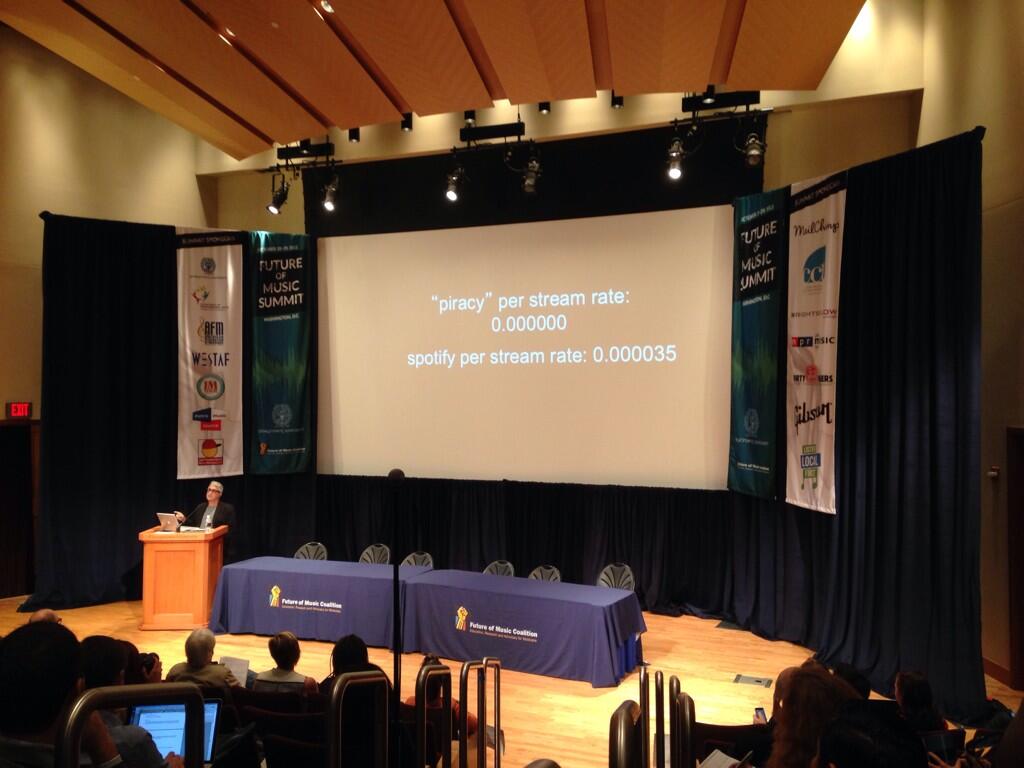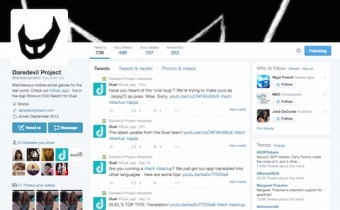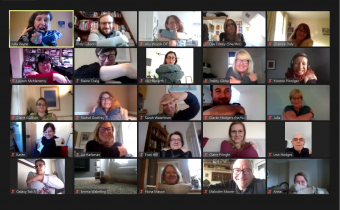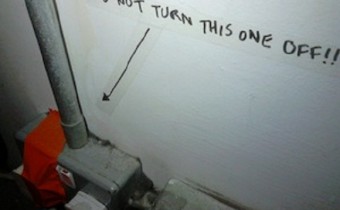In search of maverick new models…
Over the last few weeks the future of the music industry, who controls it and the role of technology has been under the spotlight. There’s been the World Music expo in Cardiff (Womex), the first Virgin Disruptors panel ‘Has tech killed the music industry‘, the Future of Music Summit 13 (#FMC13) in Washington (streamed live) and a BBC Radio 3 Music Matters programme live from Free Thinking Festival about who controls the (classical) music industry.
At Womex Julia Payne, director of the hub, in introducing Joining the Dots, described the independent music industry models as ‘just a little bit broken’. Well during the #virgindisruptors debate (see below) artist Will.I.Am went one step further… “The music industry is, as we know it dead”
Here’s Chris TT (singer songwriter)
#VirginDisruptors broader truth we all must consider is: tech ends monetization of EVERYTHING. What then? Music is the canary. #nanotech
— CJ Thorpe-Tracey (@christt) October 28, 2013
And a Guardian article by David Byrne debated on this blog too from a couple of weeks back also echoes the sentiment.
So at #virgindisruptors, the scene, surely, was set for a pop at Spotify and Vevo, both of whom were represented on the panel. Or perhaps there was a sense of realism in the room (as Peter Jenner put it at #fmc13; “Anyone who thinks that we can control the internet is up their ass”).
Instead what happened in the debate was a call for more transparency (between artist, label, distribution channel) and greater communication. “If you want to fix things – start a conversation” was a theme that echoed throughout several of the conversations across the debates. There was a real sense that the inevitable changes happening across the industry brought benefits as well as challenges. During the Music Matters debate Susannah Eastburn, Chief Executive of Sound and Music said; “We’re only just at the beginning of what the digital revolution is going to do and I think potentially we could see a democratisation of new music.”

It was really over at #fmc13 where ‘the pop’ happened. Sure services like Spotify, Pandora and Vevo are paying over significant revenues (Spotify: £500m between 2008-12, Pandora: £230m up to October 2012, Vevo: £200m up to November 2012 respectively) but how much of that is reaching the artists in question, especially after any record label has taken its share? As little as $0.000035 per stream (so 1m plays equals $35, “enough to buy the pizza and the wings”) suggested songwriter Eddie Schwartz powerfully arguing the case and need for Fair Trade for Musicians. (By comparison the infographic from #virgindisruptors showed Zoe Keating did slightly better – earning 0.0024 per stream in the first half of 2013.)
But are musicians earning less than before? Even American based Future of Music’s own research is inconclusive (due to no benchmarks being available) although their case studies and response to the question make for interesting reads. Their research identified 42 different strands of musicians income, the ultimate portfolio career perhaps!
Zoe Keating noted that; “Half of my income is from sales but I don’t feel like streaming is the evil enemy. I think it’s a good positive thing to get music out there. All I’m asking is to make a direct deal with me, let me choose my terms.” “How you make your money,” Will.I.Am added; “… is up to your imagination”.
In his presentation Tim Quirk of Google Play urged the audience not to ‘fetishise the past’, arguing that those who say music has been devalued only focus on the free/bottom tiers (of his pyramid, see above). Turn the pyramid upside down and you get a funnel – online allows you to encourage people on a journey into your music and the further down the funnel, the more niche, the more opportunities to monitise.
Everyone seems to agree it’s always been tough for musicians to survive financially. Earlier Peter Jenner had said “Most artists I’ve managed have been unsuccessful. It’s been like that forever”. As Imogen Heap pointed out the playing field did used to be much simpler “But now it’s very different. So much has changed even in the last four years; so many different ways to reach my fans; so many different unknowns”.
But the internet, argued Zoe Keating, has meant. “… an obscure artist like myself who makes instrumental cello music can just get it all out there”. This idea was also reflected in the Music Matters debate when Susanna Eastburn, said that as a result of the digital revolution “.. an increasing number of composers and artists are taking power back into their own hands and into a context where their work can thrive”, pointing to fellow panelist Gabriel Prokofiev.
Not that the internet is the answer to everything. In fact Prokofiev talked about “the fantasy of the internet” – and the time it takes to service it. “There are these tools there – but there aren’t enough hours in the day”. Which echoed a point made by Amanda Palmer – asking; “There are a lot of artists out there that don’t wanna be technological warriors, they don’t wanna create a whole new fucking platform. They just wanna make music. For the many, many, many artists who don’t necessarily want to delve into the tech business and engage in this way, my question is what about them? Are we going to lose an entire generation of musicians and art makers and creators?”
Even so there seemed to be genuine excitement in that debate – it seemed from both distributors and content suppliers for closer links between platforms like Spotify, Pandora and other start ups like Detour and Songkick) – along with a plea for platforms to share more data directly with artists.
Programmes like Detour (which enables fans to encourage artists to come to their location) are just one way in which the dialogue between artists and audiences is developing thanks to the advent of the internet and web 2.0. Ian Hogarth of Songkick added; “Right now a ticket over the last 40 years hasn’t really changed: a way of figuring out if someone should be allowed into a building and a way to add additional fees. A ticket should be an expression of what it’s like to be in that room. It’s a connection: an economic connection between you as a fan and the artist that you love. Let’s look at the first principles of this industry (the live performance) and try to reset them all.” And that’s where ideas like New Music Plus/Steve Symons /the hub and Gigzine come in – giving audiences more for their ticket price, building and deepening the connection – taking people further down Tim Quirk’s funnel!
There was an important word of caution from Amanda Palmer; “As bad and clunky as the major label system was, you still had a constant influx of capital back from those giant, sometimes soul-sucking systems, back into content creation. One weird thing is that iTunes, Apple, Spotify, Google, whatever… all of the people who are profiting off the artists from the small level to the huge levels aren’t really feeding very much back into the creation of new content. And that’s actually one of the largest problems.”
In a recently published Huffington post article
“Music is an industry that’s always been maverick and never played by the rules.”
And all the debates over the last few days suggest it needs to be more maverick than ever in developing the new business models of the future.
******
Addendum #1
As an aside it was interesting to see how the internet enabled me to ‘consume’ and ‘engage’ with these debates. #Womex13 remained steadfastly offline (though you can see BBC photographs here) whilst I listened to Music Matters via the BBC iPlayer and watched #virgindisruptors and #fom13 via live streams. According to the moderator #fom13 had between 120-150 people watching at any one time. I saw a figure of 500 for those watching the live stream of #virgindisruptors (and I suspect it was considerably more) whilst the YouTube video of the broadcast has already hit 4,700 views.
Addendum #2
There is something else happening here too which is worthy of note. Earlier in the day – the Huffington Post had published Do Women rule the music industry? It was notable that three of the four innovating artists on the Virgin Panel were female (Amanda Palmer, Imogen heap and Zoe Keating); Imogen Heap talked in her pre-record about how new technology gave her a control over her creativity she could not have imagined 10 years ago whilst on BBC Newsnight Amanda Palmer talked about how digital technologies were enabling a real evolution – an opportunity for people (and in this case women) to say things directly.
Addendum 3
Two thoughts for emerging musicians to finish with from #fmc13. The first from @erinmckeown (whose talk can be found here) – BE EXTRAORDINARY – LOVE MUSIC – and the second from later in the conference DON’T BE SHIT
Resources gleaned from these events:
If you are (like me) a twitter fiend then some relevant hashtags are:-
#womex13
#fmc13
#virgindisruptors
#jtd
And some useful links (which have not been mentioned above)
What impact has the digital age had on emerging artists? (via Virgin)
Music Ally ‘s comprehensive summary of the #virgindisruptors debate
Virgin disruptors quote by quote (via virgin)
How Spotify and its digital music rivals can win over artists ‘Just include us’ (via the Guardian)
Dreams, modest or otherwise – the Chicago Tribune on FMC13
Financial Case Studies (USA) – comparing indie rockers to jazz band leaders. An interesting read
And for fun – the Music and Money quizzes (American market – my excuse for scoring very poorly!)
Are Musicians Making More or Less Money? (Futures of Music)
Infographics
Music and How Money Flows, infographic from Future of Music
Is Tech Really killing the Music Industry? (from Virign)
And the various speakers’ Twitter handles
#virgindisruptors
@soundboy @yungskeeter @zoecello @imogenheap @scooterbraun @iamwill @amandapalmer
#jtd and #joiningthedots (joining the dots)
@tweetsatthehub @juliaatthehub
#fmc13
@erinmckeown @tbquirk @soundexchanges @melodyhill (Eddie Schwartz)
Music Matters
@susannaeastburn @tomservice @gprokofiev with Peter Millican, Mahan Esfahani, Stephen Maddoc



